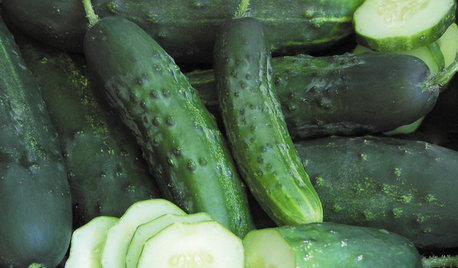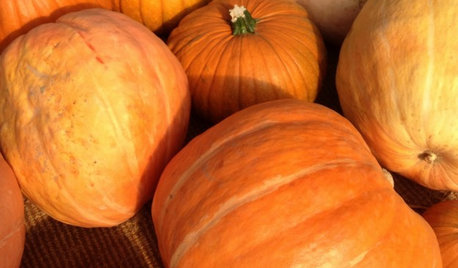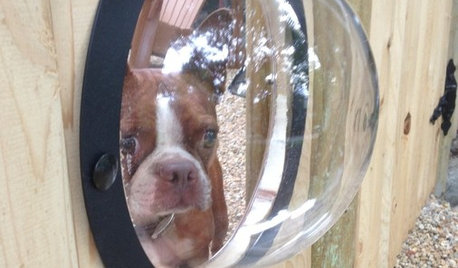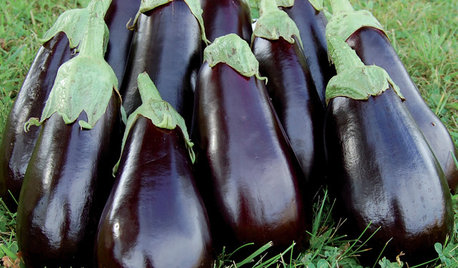Tomato Anthracnose & flea beetles
Hoschton
12 years ago
Related Stories

EDIBLE GARDENSSummer Crops: How to Grow Tomatoes
Plant tomato seedlings in spring for one of the best tastes of summer, fresh from your backyard
Full Story
GARDENING AND LANDSCAPINGBid Bad Garden Bugs Goodbye and Usher In the Good
Give ants their marching orders and send mosquitoes moseying, while creating a garden that draws pollinators and helpful eaters
Full Story
SUMMER FRUITS AND VEGETABLESSummer Crops: How to Grow Cucumbers
Pick a peck for pickles or opt for fewer and raw — no matter how you slice them, cucumbers are great for summer gardens small to large
Full Story
LIFEHow to Outsmart Backyard Critters
Learn to think like a raccoon, skunk or squirrel to keep your home safe and your garden intact
Full Story
EDIBLE GARDENSSummer Crops: How to Grow Pumpkins
Start in spring to grow your own fall decorations and have plenty left for pies
Full Story
PETSHouzz Call: Show Us Your Pet Projects!
Bubble windows, fountains, doghouses, showers — what outdoor treats have you put together for your furry friends?
Full Story
SUMMER FRUITS AND VEGETABLESHow to Grow Eggplant at Home
Plant glossy purple eggplant as much for its beauty in the garden as its flavor on the plate
Full Story0






larryw
noinwi
Related Professionals
Camas Landscape Architects & Landscape Designers · Clark Landscape Architects & Landscape Designers · Manhattan Landscape Contractors · West Orange Landscape Contractors · Florham Park General Contractors · Fort Lee General Contractors · Green Bay General Contractors · Leominster General Contractors · Newington General Contractors · Stillwater General Contractors · Tabernacle General Contractors · Adrian Decks, Patios & Outdoor Enclosures · Alexandria Decks, Patios & Outdoor Enclosures · Cary Decks, Patios & Outdoor Enclosures · Cincinnati Decks, Patios & Outdoor Enclosuresdigdirt2
HoschtonOriginal Author
homegardenpa